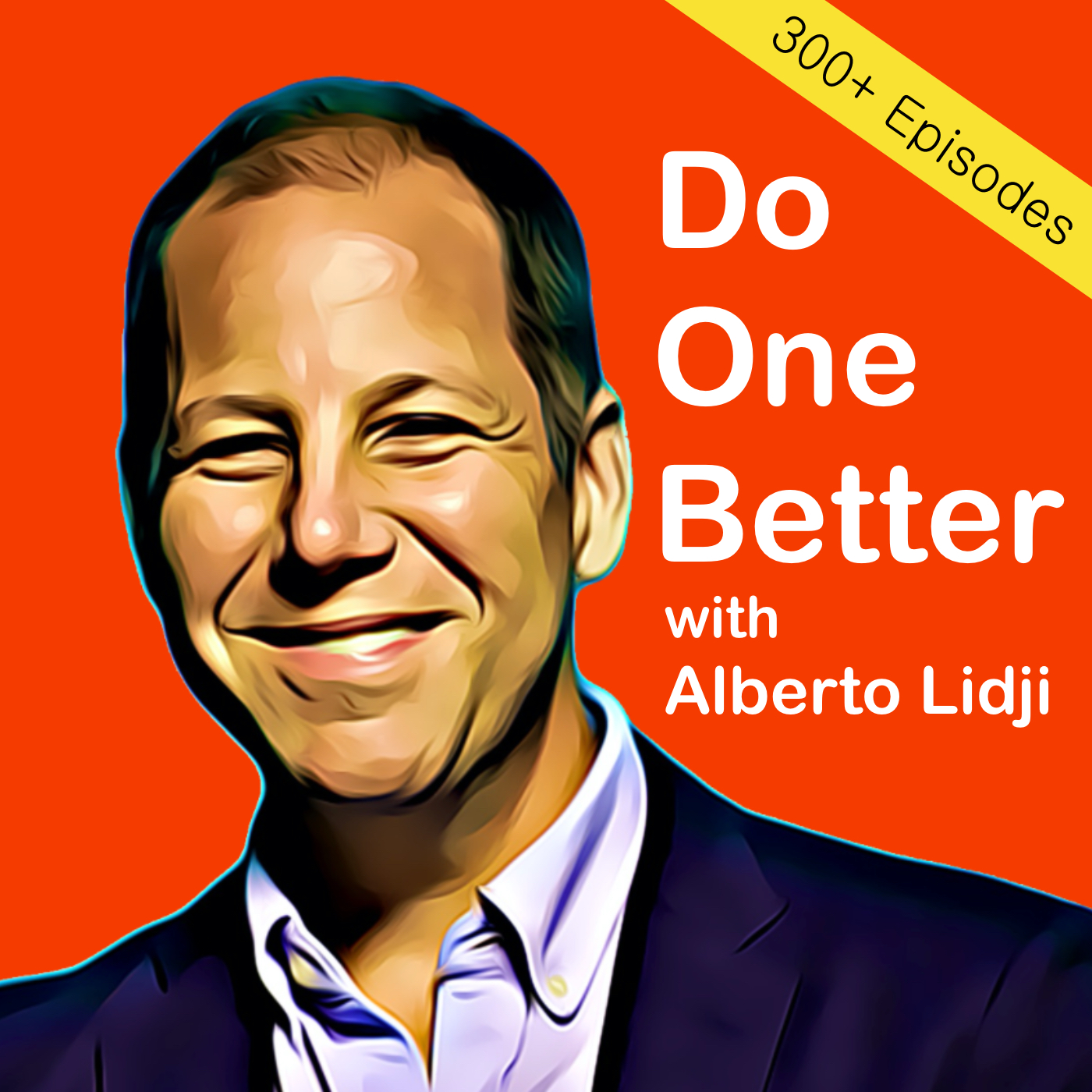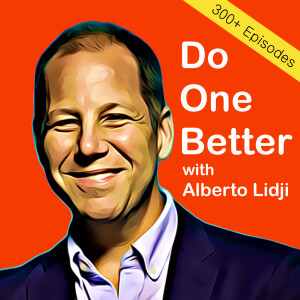

Listen to 300+ interviews on philanthropy, sustainability and social entrepreneurship. Guests include Paul Polman, David Lynch, Siya Kolisi, Cherie Blair, Chiwetel Ejiofor, Bob Moritz, David Miliband and Julia Gillard. Hosted by Alberto Lidji, Visiting Professor at Strathclyde Business School and ex-Global CEO of the Novak Djokovic Foundation. Visit Lidji.org for more information.
Episodes

Monday May 27, 2019
Monday May 27, 2019
Secretary General of the Duke of Edinburgh’s International Award Foundation, John May, joins Alberto Lidji to discuss international growth, non-formal education and their 1.3 million global participants.
John May became a head teacher in the UK at the age of 28 and he is passionate about the value of non-formal education. He’s quick to note that what happens in the classroom is only half the story and believes the Award provides young people with many of the things employers are looking for: resilience, communication skills, the ability to plan and to commit to things. He explains how the Award recognises and celebrates young people’s achievements outside the classroom.
The Award is growing quickly. While it has a presence in virtually every Commonwealth country, some of its most robust growth is in eastern Europe and the former Soviet republics. It is also offered in the USA and most recently there was interest expressed from people wishing to set up the Award in Uzbekistan. John enthusiastically notes: “you just never know where we’re going to pop up next”.
When asked whether there’s a winning formula for successful international growth without jeopardizing standards, John replies that there is. The Award tries to use the disciplines of social franchise in order to grow and reach as many young people as possible. They’ve spent much time looking at what good governance in non-for-profits looks like on an international scale, and how to ensure a sustainable business operation.
They have a host of different tools to help management teams (national operators) in different countries build capacity and ensure quality. They appreciate that well-meaning but inexperienced management teams need support and they work with such teams to help them achieve realistic multi-year strategies that take into account the need to scale up beyond start-up mode.
They also started providing management training through a certificate of business administration and, interestingly, they are about to launch an MBA for those running the Award across the world who would benefit from enhanced management skills – unlike most traditional MBA programs, this one puts the running of non-for-profit organisations firmly at the centre of the course.
They’re also embracing technology to cater to various parts of the organisation. Their Online Record Book (ORB) is a bespoke software platform that helps participants track their progress. There’s also a sister app for Award leaders (those who work with young adult participants as they pursue the Award), and an off-the-shelf extranet solution available to all adults in the Award.
On the topic of employability, John notes that while employers want technical competence from ‘first jobbers’, the reality is that most of all they want someone who’s ready to enter the job market and understand what being employed is all about. Communication skills, empathy, sticking with something – grit, resilience – and an ability to operate comfortably intergenerationally are key.
On the intergenerational point, John notes that: “when you think about it, we spend the whole of a young person’s education putting them only in contact for most of the day with people of the same age as themselves, and then they come into the workplace and they’re expected to operate comfortably with somebody who may be the same age as their parent, and they’ve had no experience of doing that. Well, the Award through the volunteering that young people will do often does bring them into relationships with a wide range of ages and so I think that really, really helps.” Non-formal education helps young people learn how to communicate effectively in ways that are often lacking in formal education.
Interestingly, the Award is not just delivered in schools. Far from it. There’s a firm belief that it should be available wherever young people come together for whatever reason. And, we hear of how the Award is successful in correctional facilities and juvenile detention centres.
John notes that “some of our biggest successes over the last few years have been in facilities where young people have the least opportunity to undertake those sorts of activity, particularly correctional centres and juvenile detention centres. In South Africa, our work with the correctional services has been, I think, genuinely life changing for young people. I was listening this morning to a report from New Zealand on New Zealand Radio of young people in the correction centres in Christchurch receiving their Bronze, Silver and Gold Awards. And, these young people being interviewed and saying this was the first time in their lives that they had felt in control of choice as to what they were going to do, and that they were developing skills and behaviours and attitudes that would lift them from crime. That’s pretty cool.”
When asked about his personal career path his answer was clear: he has had no career plan. John notes that: “all the time, as far as I’m concerned, my development as an educator and as a leader has been down to two things: the first would be another individual who has been kind enough to recognize in me some kind of quality that they felt could be developed; and my willingness to carpe diem – seize the day -- and make the leap that was being offered to me. And, I think you put both of those together and you end up with the opportunities that one can then take advantage of. Unfortunately, too many people plan their lives too carefully and miss the opportunities that are put out in front of them because they don’t quite fit the direction that they think that they have positioned themselves for.”
John’s key takeaway for listeners: ‘do the right thing’. In everything he does, he always asks himself what is the right thing to do.
Full episode notes, useful links and guest bios are available at Lidji.org - Please subscribe to this podcast if you enjoy the content. Thank you.
No comments yet. Be the first to say something!